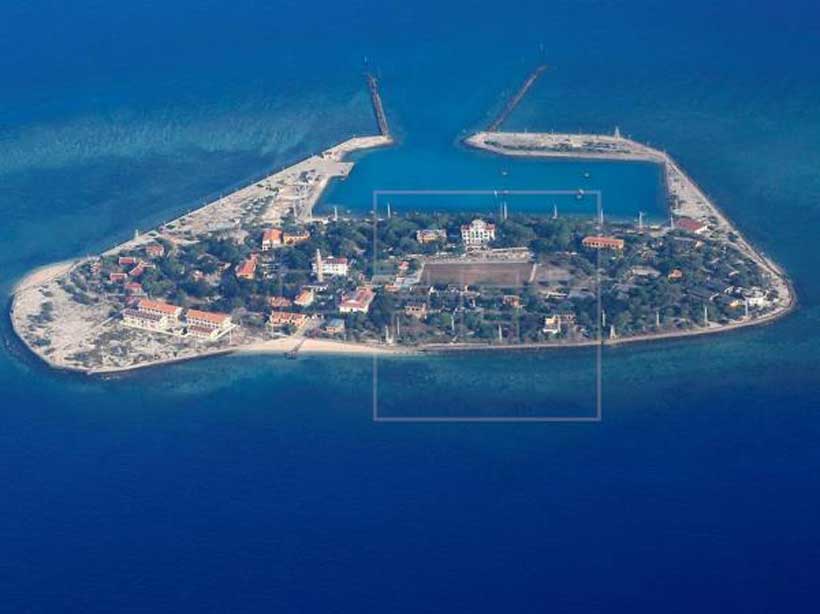Chinese Premier Li Keqiang during his Singapore visit for the China ASEAN summit had remarked that China would work hard and ensure that the Code of Conduct (CoC) on South China Sea is concluded within three years. While the global community and regional strategic experts waited for sixteen long years (2003-2018) to get a single draft on the CoC, another three years would be acceptable. However, outlining Chinese objections and rather incoherent historical arguments might not hold true in the long discussions. The problem for Chinese is that while they have technically agreed on the single draft, the reservations with regard to conduct of exercise and the non-binding nature of the COC will once again open Pandora’s box. Within China, there have been strong advocacy groups and even historical facts which are constructed to build the narrative that South China Sea belonged to China since times immemorial. However, in the same context, historically, Hainan island belonged to Vietnam, and it has been accepted by the Chinese. The reflections of which can be seen in their provincial museums. The nature of debates and discussion in this context is interesting, and it is still not clear that how much China going to accommodate the interests of other claimants and whether there would be a lasting peace.
Evaluating the developments with regard to SCS, China has made it very clear that signing of COC does not in any way means that the territorial and maritime sovereignty issue related to the contentious zone would be resolved. So if the global community is under this utopian idea that things will smoothen out, might face shock in future. China has been claiming during the PCA arbitration between 2013-2016, SCS was not peaceful and there have been untoward incidents. However, in the post PCA phase there has been relative peace in the region. China has been claiming that with the influx of new actors including US, UK, Japan and Australia, the issue of territorial sovereignty and maritime zones would give rise to new trends in regional conflicts. Of late, there has been a series of unpleasant face offs between China and US, and it has been claimed by scholars from China that SCS might influence US-China relations in future. Chinese scholars have claimed that SCS is more about geo-political interest rather than any strategic advantages in terms of sea power. It has been seen that competition between US and China is strategic and structural and the bigger challenge is that it is irreconcilable. Scholars from Chinese institutes such as National Institute on South China Sea have stated in public discourse that US have been using strong propaganda mechanisms to project that Chinese island building would jeopardize peace and tranquility in the region. China believes that there should be some balance with regard to the interactions between claimant states and the role played by non-claimants. Closely emulating US stance other US allies are trying to flare up tensions and it is stated in Chinese discourse that in May 2017 and between August -October 2018, Japan as well as other US allies have conducted operations and sorties leading to unnecessary tensions. Chinese believe that presence of US undermines peace and stability in SCS. Among the claimant states peace and tranquility is undermined because of US military interactions with Vietnam, Indonesia, Singapore and Australia focusing on the developments in SCS.
China has conducted military exercises with ASEAN in the past and is willing to build structural mechanisms to address issues of trust and confidence building. The claimant states need to work on the cooperative action plan such as developing joint cooperative mechanism for exploration and development of resources. However, the serious lacunae in Chinese proposal is that it wants to work in non-disputed areas before making any commitment in SCS. Outlining the Chinese perspective on the reasons for flare up in SCS, Chinese scholars have projected that the reasons include the conduct of US navy, interference in COC consultations, facilities and military deployment in SCS by other claimants, and unilateral action in disputed areas by the outside powers.
While the Chinese narrative might seem convincing but there are flaws in this discourse. Firstly, China has failed to outline the geographic coordinates of the nine-dash line and the nine-dash line was at one point eleven dash line also. It claims that it has resolved maritime delimitation mechanisms between China and Vietnam in the Gulf of Tonkin due to which the two dashes were removed from the claimed area.
President Xi has signed an MoU on oil and gas exploration during his visit to Philippines but China feels that the development and even exploration of any oil and gas exploration should be endorsed by China as it is the biggest party to the conflict. China has also proposed that China and ASEAN should maintain peace and stability in SCS without any outside intervention. The proposal of developing Reed bank has been made by China as it is a non-controversial area. Nevertheless, China has made it very clear that COC would not be able to solve sovereignty and territorial issues. In conclusion, China has made it clear that it would not define the geographic coordinates of SCS claimed by the country as it would give a wrong impression that China is going to usurp the whole SCS but the challenge for China is that it has not yet done its homework and is wary of the global backlash. Of course, US-China trade war has impacted Chinese hardline stance on SCS.


